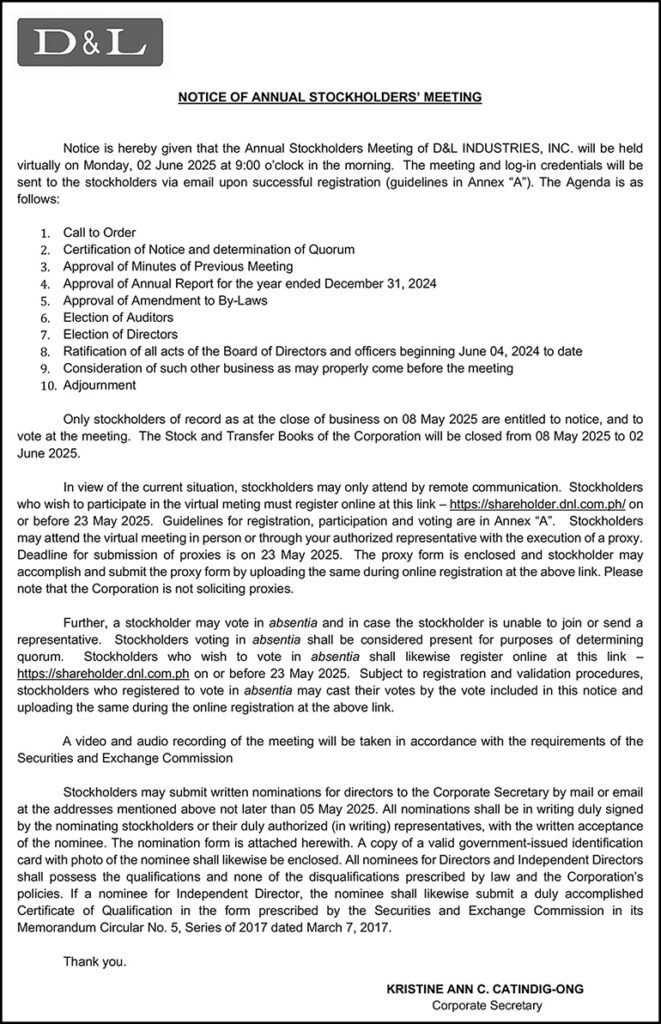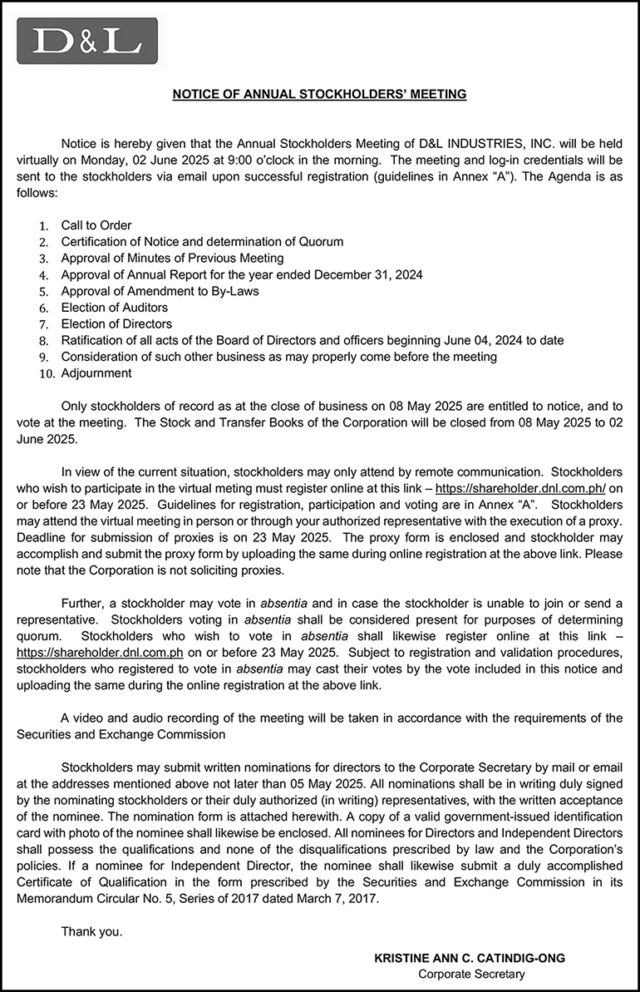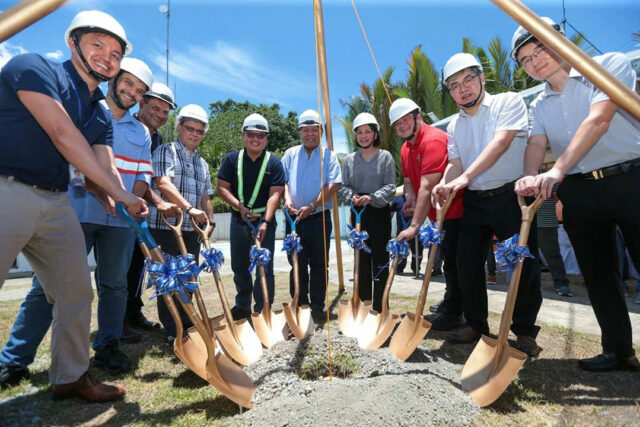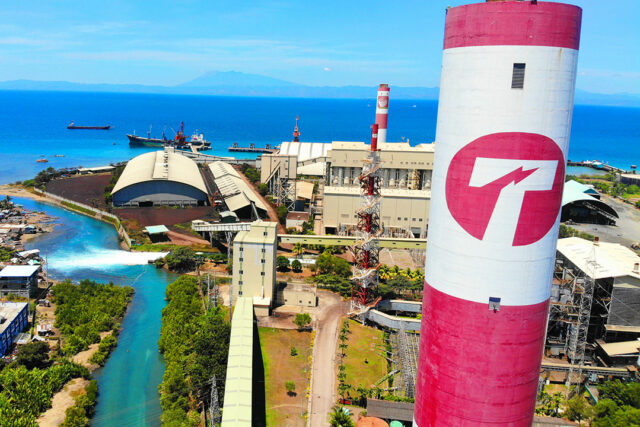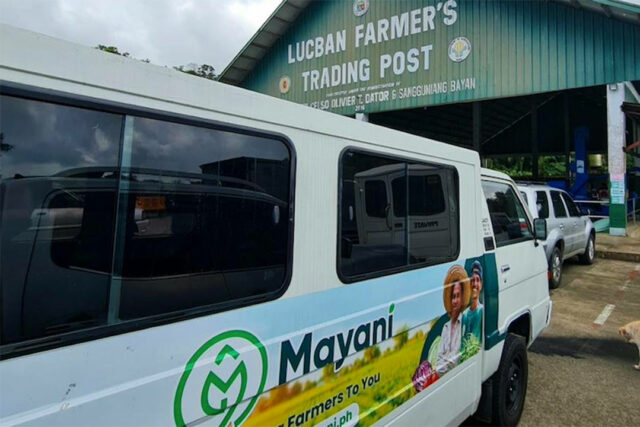(Part 4)
We have seen how the increasing re-consolidation of small farms into larger units of thousands of hectares to follow the banana and pineapple model of large commercial farms is being encouraged by the Marcos Jr. Administration.
We presented the Lionheart Farm model of coconut farming. Located in Rizal town of Palawan, the farm is able to creatively combine the objective of significantly increasing farm productivity and, at the same time, improving the lives of farmers and farm workers living below the poverty line. Hopefully, this model will be replicated with farms of other commercial crops like palm oil, bamboo, coffee, cacao, mangoes, avocado, durian, and pili and cashew nuts. It is important that there be a source of long-term capital coming from Foreign Direct Investments or from the Maharlika Investment Fund put up by the Government.
Equally important for food security, however, is the sector in agriculture consisting of millions of small farmers and fisherfolk with such produce as rice, corn, vegetables, fruits, cut flowers, poultry, hogs and other livestock, as well as aquaculture products. Here, the major assistance must come from the Government in the form of more efficient infrastructure such as farm to market roads, irrigation systems, post-harvest facilities, agricultural extension services, digital infrastructure, and access to credit. The private sector, however, has a very important role in supporting the efforts of the Government, mainly to help the farmers and fisherfolk rise from poverty, by engaging in what is called social entrepreneurship, in addition to the traditional non-profit organizations or NGOs focused on reducing poverty in the countryside.
A very good example of a social enterprise is Mayani, which was represented in the Forum on Digital Transformation by its CEO, JT Solis. As we can read on its website, Mayani is a social enterprise (a for-profit business whose special mission is to address a major social problem like mass poverty). It envisions a Philippines where smallholder farmers and fisherfolk lead better lives because of technology, community, and an overarching passion to cultivate positive impact. By building a sustainable pathway to market, Mayani is able to boost rural incomes while strengthening access to affordable fresh produce for both households and commercial buyers. Mayani now collaborates with the country’s largest supermarket chains, food brands, international hotels, food processors, and other institutional players in moving the Philippine agri-fisheries sector forward.
In the session on “Digitalization in Market Access and Logistics,” Mr. Solis started by asserting that the major problem in market access available to the small farmers is the huge data deficit. What Mayani is trying to build is not only the infrastructure that underpins the supply chain operation available to the small farmers and fisherfolks, but the INFOstructure that is needed to correct the asymmetry of information, i.e., the abundant market information available to the big middlemen in contrast with the lack of data among the small producers.
Referring to information made available by Facebook and news websites, the news of the day was about the 91 hectares in Bungabon, Nueva Ecija that were devoted to the planting of tomatoes. Because there was an oversupply of tomatoes, the prices faced by the farmers collapsed. There was evident overproduction. The irony was that inflation in January was 2.9%, of which 4% was accounted for by the price of tomatoes. Of the top five contributors to inflation, the majority of the commodities actually hailed from the agricultural sector, with tomatoes being number one, in fourth and fifth place were pork meat and poultry, respectively.
This explains why just by providing the small farmers with information on the prices of the commodities they produce at the retail level through their respective cellphones, Mayani can already help the farmers get better prices because they are no longer at the mercy of unscrupulous middlemen who take advantage of the ignorance of the farmers. This illustrates the power of INFOstructure in benefiting both farmers and consumers.
Mr. Solis then elaborated on the benefits conferred on the population by the social entrepreneurship function of Mayani.
First, Mayani acts as an agri-commerce platform that is able to provide ordinary Filipinos with access to nutritious, fairly priced food products. This benefit was actually enhanced when Mayani started to work directly with B2B offtake partners like Jollibee Food Group, Shakey’s, etc. that are patronized by the ordinary Filipino consumers. These food retailing giants, by having access to reasonably priced raw materials, can then afford to keep their prices at reasonable levels for the mass consumers who belong predominantly to the C, D, and E households.
In addition to helping the institutional buyers access raw materials at lower costs, Mayani also helps provide the necessary financing to enable them to have access to lower-priced inputs, thus bringing down the cost of production. Mayani partnered with GCash enabling it to leverage the INFOstructure. The data contained within the supply chain enabled Mayani to holistically underwrite loans to the small farmers, while at the same time leveraging the offtake from the institutional buyers whose commitment to buy the produce of the small farmers guarantees the repayment of the loans.
Mr. Solis stressed that the role of the government is crucial.
According to him, the function of the government is to provide an enabling environment for the private sector to thrive alongside civil society organizations and other sectors of society. This is where the Local Government Unit (LGU) has an indispensable role. In the countryside, the “government” is the LGU, not the National Government. So, Mr. Solis stressed, Mayani works closely with the LGU officials.
In his words, “Last week we just came from Batangas with a team with GCash and we consulted with the smallholders in the presence of the local barangay kagawad that is always there, together with the mayor and the vice-mayor. Equally important is resource sharing. For example, the public sector can provide the use of trucks during times of oversupply.
“It is important to change the mindset of the farmers. As regards logistics, they have to reimagine the value chain, both in regard to access to the market and access to credit. As regards the former, I remember working with farmers in Pangasinan. They were used to working with four layers of middlemen. It was difficult for them to reimagine how to shorten the supply chain. It was even a greater challenge to rethink the manner in which they financed their production. When we started our partnership with GCash, we saw the lay of the land for credit. We realized that the farmers did not have bank accounts, credit cards, or collateral. Theirs was the world of informal credit in which predatory lending was the rule, leading to very high rates of interest.
“We asked them to imagine a situation where they were freed from those traditional usurious ways of financing their farming. Instead, we proposed to work with them, provide them with market access, and by leveraging the power of offtake and demand from institutional buyers, we could provide them with financing at more reasonable interest rates. In that way, they can belong to the world of formal credit and build their own credit history. Today, they are normally banked and belong to the world of formal credit, where predatory pricing is not the norm. We were able to demonstrate that the traditional mindset of the small farmer can be changed with the appropriate social intervention.”
(To be continued.)
Bernardo M. Villegas has a Ph.D. in Economics from Harvard, is professor emeritus at the University of Asia and the Pacific, and a visiting professor at the IESE Business School in Barcelona, Spain. He was a member of the 1986 Constitutional Commission.
bernardo.villegas@uap.asia
